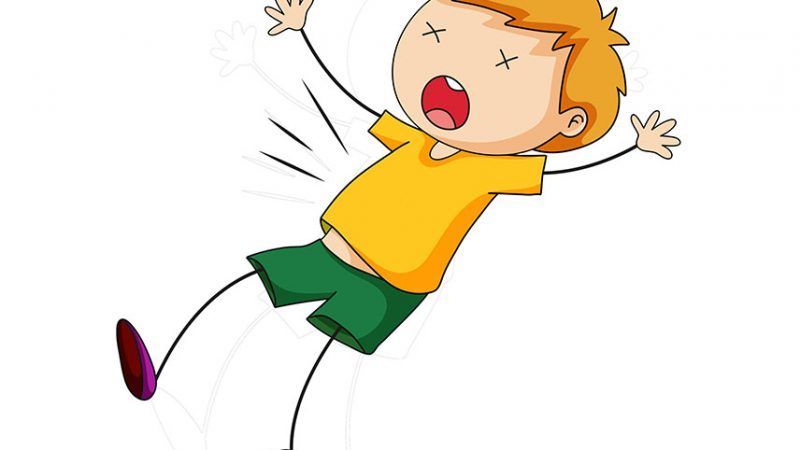Want to Treat Your Kid Like a Felon on Parole? There's an App for That.

After you bring that bouncing baby home from the hospital, forget about hand-knit booties. Today's trendy tots are sporting the Smart Sock 2.
This $299 foot adornment contains sensors that, in the words of its website, "track baby's heart rate & oxygen from your phone." Thanks to technology "used in hospitals around the world," you now have the ability to treat your healthy baby to the level of scrutiny she'd get if she were born without a liver. "Peace of mind in parenting is closer than you think," the ad copy whispers in soothing tones.
And it is. If you throw out the sock.
The product can be a parent's first baby step into the scared new world of constant child monitoring—one filled with gadgets that let parents watch literally everything their kids do, read, eat, see, visit, and even excrete. ("Smart Diapers" will analyze baby's output for signs of disease.)
It's a granular level of data never before afforded to parents. But now that you can obsess about every aspect of your child's life, you're likely to assume you must. Instead of worrying when your kids are actually sick, you're told to worry that they're just seconds away from death all the time. Why else would you need a constant readout of your happily snoozing baby's blood oxygen level? Do you even know your blood oxygen level?
Welcome to the new parenting paradigm: You must be all-seeing and all-knowing when it comes to your kids. Consider this far-from-exhaustive list of new monitoring devices. The Nanit sends parents "comprehensive reports" on their child's "sleep behavior" all night long. The SmartSense Presence Sensor alerts you when anyone enters or leaves the nursery. The Summer Infant Baby Wave Deluxe Digital Audio Monitor live-streams the temperature and noise level in a child's room.
The Happy Gadget, still in crowdfunding stages, will let caretakers know each and every time their child falls down. A dad at work gets a notification on his device: Ding! Little Zeke has stumbled somewhere.
When this level of knowledge is possible, anyone opting out is seen as negligent. We already live in an era when parents can get arrested simply for letting their kids walk home from school alone. Playing outside unsupervised—even in a kid's own backyard—is suspect when the assumption is that only nonstop monitoring can possibly be safe.
The electronic supervision doesn't stop when the children are old enough for school. An infinite number of devices can be clapped onto their wrists or tied onto their shoes to track their steps anytime they leave the house. "Sure, you only live a few blocks from school, but letting your kids make the journey alone seems terrifying," a press release from one such product warns. "Freedom is important, but before saying yes, show them how to send you a Glympse. You can ensure they make no stops or detours, and have peace of mind whether you are at home waiting for them, or at the office unable to concentrate until you know they are home safe."
Assuming parents will be so scared they can't do their jobs while their kid walks a few blocks is like telling Victorians they shouldn't look at a piano leg, lest they be tempted to think about lower appendages on actual human females: The Glympse normalizes a completely distorted view of the world.
Nor does it actually grant children "freedom." An adult outlines a safety zone. The kid goes to pet a dog and "detours" a few steps astray. The parents are notified and rush to intervene. The child has all the freedom of a felon with an ankle monitor.
As kids get older, there are still more products—to read their texts, to analyze their photos, to report their web activity, to scan their correspondence for words that some algorithm thinks indicate unsafe behavior or thoughts. Other gadgets can tell parents when their teen is driving, as well as how fast and where to. There's even a device that monitors your liquor cabinet.
Children raised under the parental panopticon may come to resent it. But it's just as likely they'll come to expect or even depend on it.
When you've grown up in prison, freedom is terrifying.
This article originally appeared in print under the headline "Want to Treat Your Kid Like a Felon on Parole? There's an App for That.."


Show Comments (18)